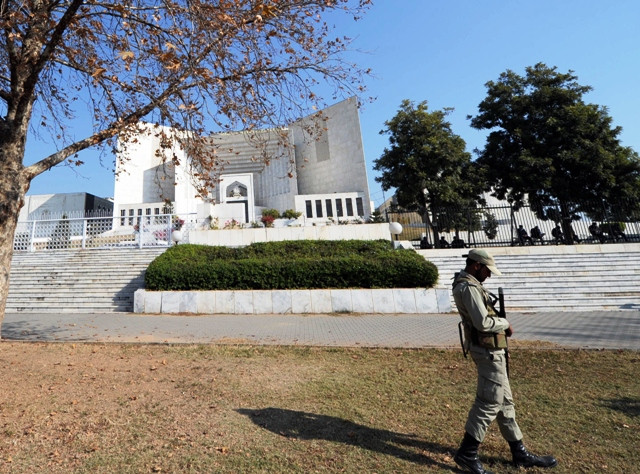Judicial independence: SC restores PSB judges panel power to appoint district judges
SC up holds SHC ruling to allow Provincial Selection Board comprising High Court Judges to appoint district judges.

Judicial independence: SC restores PSB judges panel power to appoint district judges
The provincial government through a 2008 notification had taken power of selecting and appointing judges of the district judiciary away from a “Provincial Selection Board” comprising High Court judges. The power was, instead, handed over to Sindh Public Service Commission.
A three-member bench of the apex court headed by Justice Shakirullah Jan heard the case. The apex court has held that high courts are the forums constitutionally empowered to select and appoint judges of the district judiciary. Thus, the control of the process can not be vested in the executive, which includes the Public Service Commission.
The petitioners, Sindh High Court Bar Association, Sindh Bar Council, and some members of both, had challenged the constitutional basis of the notification before the High Court of Sindh. They had contended that the notification adversely affects the independence of the judiciary and its separation from the executive–both guarded and guaranteed by the Constitution; and that the role which the Constitution had reserved for the high courts could not be conferred on any other body, not even the Public Service Commission.
In 2009, the High Court had accepted a petition and struck down the notification. The government of Sindh, however, appealed that decision in the Supreme Court. However, on Wednesday, the apex court up held the Sindh High Court’s ruling.
In the opinion offered by Justice Jawwad S. Khawaja, the Supreme Court reaffirmed a long series of precedents pertaining to the institutional guarantees provided by the Constitution to the judiciary.
The opinion explains that those guarantees applied to both the superior judiciary and the district courts. Relying upon the dicta laid down in the famous Judges’ case, the court noted the ‘inextricable link’ between the mode of appointment of judges and their institutional independence.
The court observed that the changes made by the 1994 Rules, such as granting high courts the power of appointment of judges of the district courts were, in fact, only a contemporary exposition of constitutional articles—such as article 175 and 203.
The executive had brought about these changes in the background of constitutional cases—particularly the Sharaf Faridi cases—and in fulfillment of stipulated constitutional obligations. It could not reverse such changes now. Any such move would be unconstitutional. The notification under challenge has been struck down on the same ground, the court order said.
The Supreme Court has, however, set aside certain remarks in the High Court’s judgment. These remarks pertained to the institutional performance of the Sindh Public Service Commission.
Justice Khawaja clarified that these remarks were unnecessary and the high court was only called upon to adjudicate the validity of a notification and not the credibility of an institution forming part of the executive.



















COMMENTS
Comments are moderated and generally will be posted if they are on-topic and not abusive.
For more information, please see our Comments FAQ